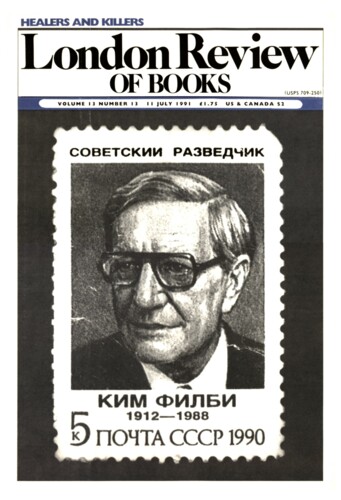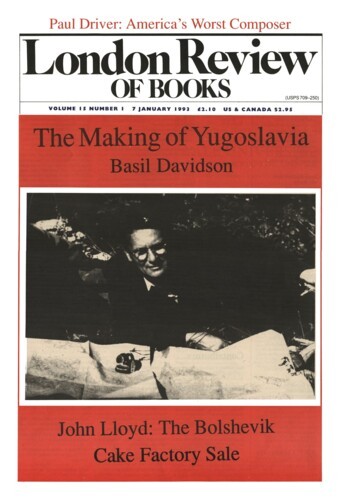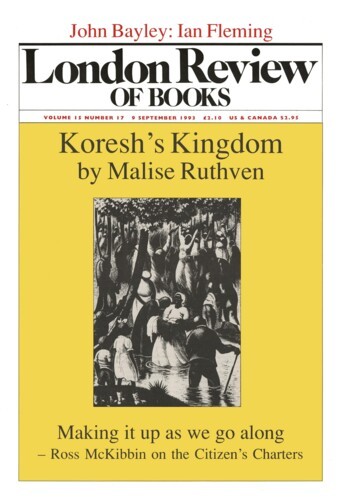Dying Africa
Basil Davidson, 11 July 1991
Africa? But Africa is dying … Or certainly the nation-state in Africa is dying wherever it is not already dead – see Chad, Sudan, Somalia – while dragging multitudes of starving or sorely wounded people into disaster such as the continent has never seen before, and on a scale that is hard even to imagine. Immediate arena of these evils, the post-colonial nation-state has become in most cases a fragile shell of exploded aspirations, a constitutional garbage-can of shattered loyalties, or a cemetery of projects without a future. There may be leaders who still believe that patience and courage can save the day for the sovereignties they claim to govern. In other cases, more numerous, governments without talent and politicians without conscience wade ever deeper into the miseries of failure.




